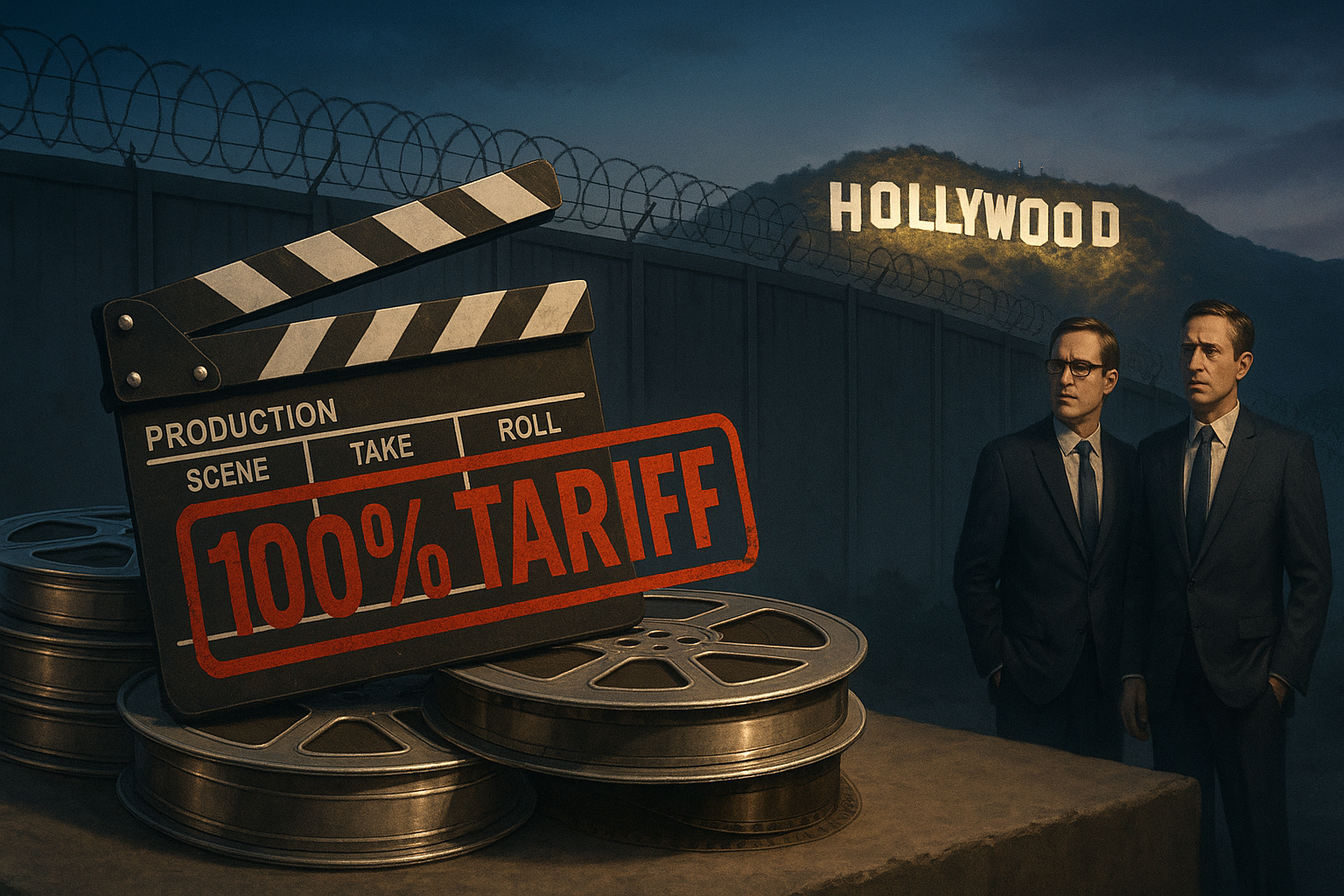Donald Trump wants to slap a 100% tariff on foreign-made movies if he returns to office. Let me say that again because it sounds absurd even as I type it: a one hundred percent tax on films made outside America.
The former president's proposal has sent Hollywood executives reaching for their anxiety medications and foreign film producers scrambling to understand what exactly constitutes a "foreign-made" film in today's thoroughly globalized entertainment ecosystem.
I've covered trade policy for nearly a decade, and this announcement ranks among the most perplexing I've seen. It's not just unusual—it's practically a plot twist worthy of M. Night Shyamalan in his prime.
There's something deeply ironic about a former TV star proposing what amounts to a financial wall around the American film industry. The entertainment business has become so internationally interconnected that untangling what makes a movie "American" versus "foreign" would require a team of lawyers, accountants, and perhaps a philosopher or two.
Take "Dune: Part Two." American studio, Canadian director, shot in Hungary, Jordan, and the UAE, with post-production work likely spanning multiple continents. What nationality is that film, exactly?
"This proposal fundamentally misunderstands how modern entertainment is produced," said Maria Gonzalez, a film finance specialist I spoke with yesterday. "You can't—um, you really can't put this particular genie back in the bottle."
The timing couldn't be worse for Hollywood. The industry is still nursing a hangover from last year's dual strikes, theater attendance remains stubbornly below pre-pandemic levels, and streaming services have finally discovered that, yes, profits eventually matter. Adding a massive tariff to this mix seems like prescribing skydiving lessons to someone with a broken leg.
But here's where it gets interesting.
American films represent one of our most successful export industries. According to the Motion Picture Association, the movie business generated a trade surplus of approximately $16.3 billion in 2021. That's billions with a B.
Hampering an industry that actually makes America money? Makes about as much sense as installing a swimming pool in the Sahara.
What would actually happen under such a tariff? Studios wouldn't simply shrug and move production back to California. No, they'd get creative—and not in the artistic sense.
We'd see a explosion of complex corporate structures, foreign subsidiaries, and financial engineering that would make even the most seasoned tax attorney's head spin. I'm calling it "origin laundering" until someone comes up with a better term. Mark my words, it'll be a thing.
The stock market, predictably, reacted with all the calm of a cat in a thunderstorm. Shares of major studios bounced around more violently than a hand-held camera in a Jason Bourne chase sequence. One analyst I spoke with described the market reaction as "pricing in uncertainty on top of uncertainty, with a side order of what-the-hell."
Look, the global nature of filmmaking isn't just about saving money (though that's certainly part of it). International production creates diplomatic connections, spreads American cultural influence, and helps studios access foreign markets. A hammer this heavy would crush those delicate relationships faster than you can say "box office bomb."
The announcement comes at a curious time in global cinema. American films have dominated international screens for decades, but we're seeing genuine competition emerge—South Korean movies winning Oscars, Indian films breaking box office records, Chinese productions with budgets to rival Hollywood's biggest spectacles.
Is this proposal a reaction to that shifting landscape? A knee-jerk protectionist response to a perceived threat? Having tracked Trump's trade policies since his first administration, I'd say... probably.
What happens next is anybody's guess. Studio executives will lobby hard against this. Foreign governments will threaten reciprocal measures. Lawyers will start drafting contingency plans that would make for very boring, very expensive reading.
And somewhere in Hollywood, a screenwriter is already turning this whole saga into a political satire. I just hope they finish production before any tariffs kick in.
